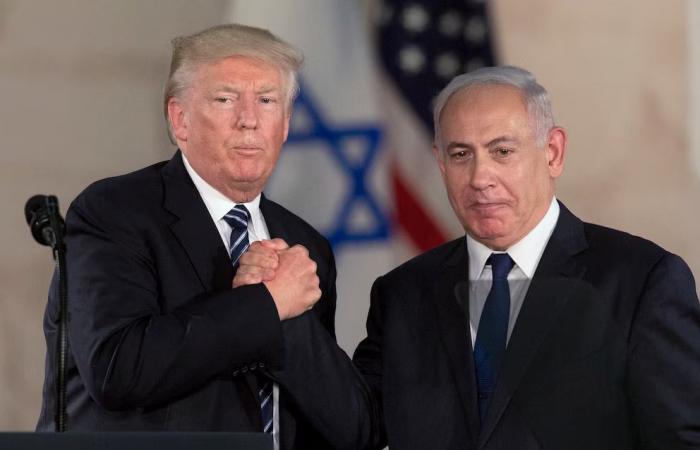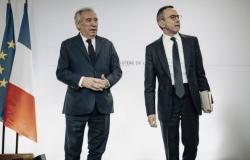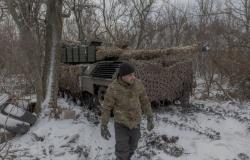
The president-elect of the United States defines a regional plan favoring ties with Tel Aviv and Riyadh to end the crisis in Syria, destroy Tehran’s nuclear project and prevent Hezbollah, Hamas and the Houties from regaining their operational capacity
Romain Lejtman
Correspondent in Washington DC
Donald Trump Allows you to set an agenda towards the Middle East which will be supported by a diplomatic alliance with Israel and Saudi Arabia destroy the nuclear project Iran, stabilize the crisis by Syria and dismantle the terrorist capacity of Hezbollah, Hamas et Huties.
Trump discuss these key questions of his next administration with Marco Rubio -appointed Secretary of State-, Mike False -future national security advisor-, Steve Witkoff -special envoy to the Middle East- and Massad Boulosspecial envoy for Lebanon and the Arab world.
Meetings are held at Mar-a-Lago, and they have different formats depending on the agenda that Trump and the future members of his Republican administration must respect. Except for Rubio and Waltz, who they move from DC to Florida, Boulos and Witkoff they have already traveled in Qatar and Saudi Arabia.
The road map of the president-elect of the United States begins with Israel, which is the regional strategic partner of the White House. Trump seeks to close before the end of the year a ceasefire in Gaza which allows free hostages held by Hamasand ease tensions in this region of the Middle East.
At the same time, Trump is considering various initiatives to destroy Iran’s nuclear capabilitywho lost regional weight due to the truce in Lebanon and the fall of the Al Assad clan In Syria.
The Republican leader oscillates between economic sanctions o the supply of very high precision bombs to Israel execute a joint air mission that hour with the most ambitious geopolitical project of the ayatollahs.
Trump the souligné that The United States should not get involved in Syria, but his political-military situation conspires against the prospect of the elected president.
Syria is the scene of armed clashes between different groups – who respond to the White House and Turkey – and two hours from Damascus there are detention centers which They are occupied by almost 10.000 ISIS terrorists.
Furthermore, in Syria there are chemical weapons depots which have not yet been destroyed, Russia has two military bases to the north, and Hezbollah terrorists They are still hiding and waiting for instructions from Tehran. Abou Mohamed al-Jolani, leader of the Hayat Tahrir al Sham group which overthrew the Al Assad clan, he only controls Damascus and its surroundings.
In this context, Trump began to reverse his initial position and rely on Israel and Türkiye pour access privileged information this allows him to arrive at his presidential inauguration – on January 20 – with a current vision of the situation.
The President of Turkey, Recep Erdogan financed Al-Jolani’s military campaign and it influences in his political decisions, while Prime Minister Netanyahu and the The Kingdom of Jordan has already made contact with spokespersons from the Hayat Tahrir al Sham group to agree on a minimum security program.
Israel, Turkey, Jordan and the transitional government in Syria, as the next Republican administration, They pursue the same strategic objective: prevent Iran and Hezbollah from operating in this area failed statethat, for years, was used as a smuggling channel of weapons to Lebanon, Gaza and the West Bank.
In the Middle East strategy designed by Trump and his transition team, Saudi Arabia plays a key role, as does Israel.
The president-elect speaks on the phone with Netanyahu, since they have known each other for decades, and in the case of direct contacts with Saudi Arabia, Steve Witkoff traveled non-stop to Riyadh to meet him Crown Prince Mohammed bin Salman (MBS).
Witkoff is a personal friend of Trump and was named his special envoy to the Middle East. The meeting with MBS served for analyser the negotiation between Israel and Hamas, and the role that Saudi Arabia can assume in the region.
Trump wants Saudi Arabia to recognize the State of Israela possibility that was close and which the October 7 terrorist attack imploded. In this perspective, as he did with the Abraham Accords, the Republican president attempts to pacify the Middle East and isolate Iran.
Crown Prince Bin Salman coincide with Trump’s geopolitical perspective, but raised the need for a truce in Gaza and a reconstruction plan from the Gaza Strip before entering into formal negotiations to establish diplomatic relations with Israel.
The president-elect is ready to wait (Saudi Arabia) has deep ideological and religious differences with Iran, and can function as a balance of power with Tehran. And in the same political logic, Riyadh also displays sufficient weight to appease the regional influence of Qatar, which for years protégé to the terrorist leaders of Hamas and Hezbollah in Doha.
Trump defines an action plan for the Middle East which is operated in Israel and Saudi Arabia. It is about a complex diplomatic process, in an unstable scenario and with actors like Iran, Qatar, Hezbollah and Hamas, who have their own agenda and have always preferred regional instability.
Source : INFOBAE





